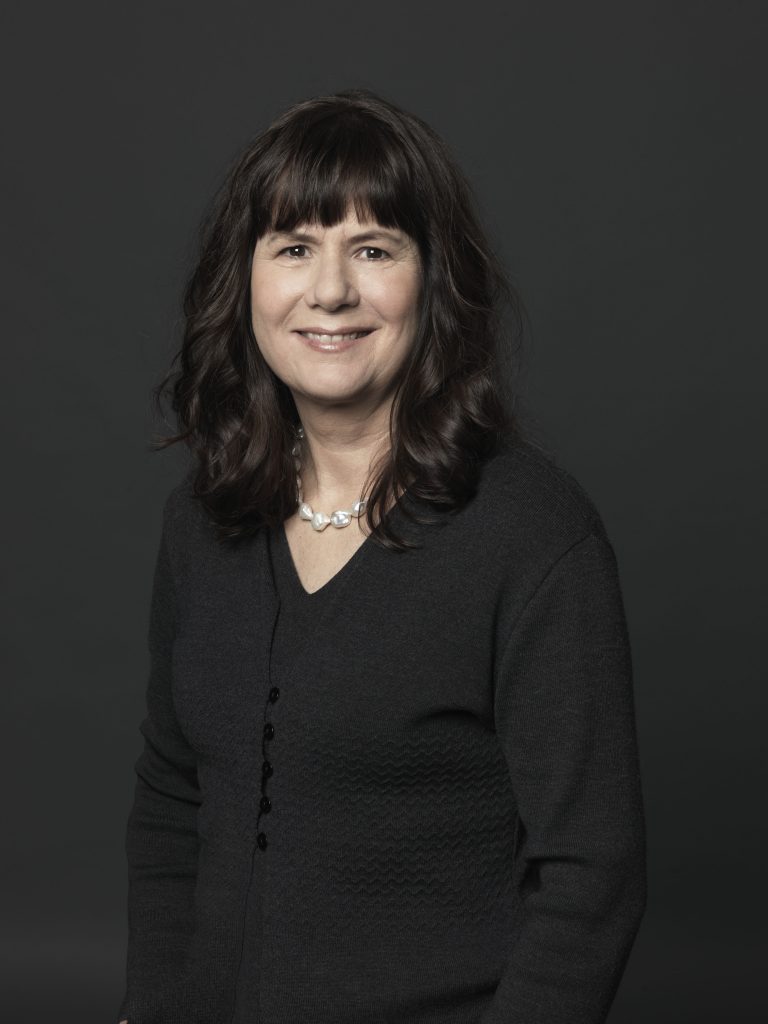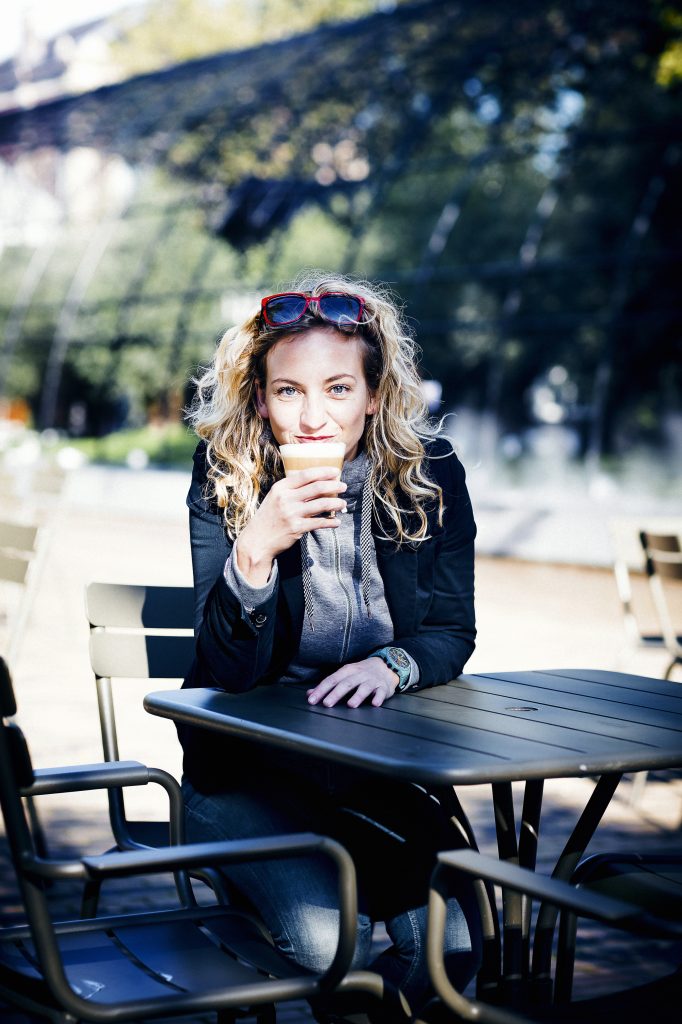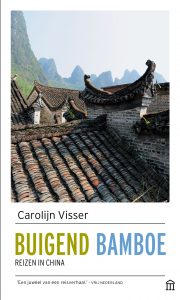Holidays are just around the corner, so it's time to pack your bags. Travel writers Carolijn Visser and Iris Hannema prefer to be on the road all year round. 'The Netherlands is lovely, but after a few months at home it already starts itching again: travelling turns everything upside down; your ideas about the world, the ideas you have about yourself.'

Isn't it dangerous, travelling alone as a woman? That question is regularly asked of Carolijn Visser and Iris Hannema. For years, they have travelled the world, writing about their adventures and insights. Carolijn Visser (1956) is one of our country's most successful travel writers. She has been travelling for a living since the age of 19, especially to (post-)communist countries. Her first travel book, Grey China, came out in 1982. She now has more than 20 titles to her name, including Bending bamboo - of which a reissue has just been published - and Argentinean evenings.
Iris Hannema (1985) has already visited almost 100 of the world's 192 countries on her own. Her first travel book Miss yellow hair, hello! appeared in 2014, and she also writes about her travels in Wed, Zin and the Champion. Last month, her second book was published: The bittersweet paradise.
Fireplace
Of course, travelling alone as a woman sometimes produces quite exciting situations. Carolijn Visser, for instance, was kidnapped in Turkey when she was 20, along with a friend and two others. 'The four of us were taken to a remote spot where 20 men were waiting. Now I'm going to be raped or killed, I thought, or both. No, that wasn't fun,' she says cheerfully, joking, 'That's the advantage of getting older; I have fewer such problems now.'
It all ended well; better than with a friend who disappeared in Nepal and was never heard from again, she says. 'Of course, strange things can happen, but according to the figures, most women are raped or murdered by someone close to them. So it's just as dangerous elsewhere as at home by the fireplace.'
Iris Hannema nods. 'I learned to trust my own abilities and my intuition. You develop a nose for mischief and scalpers. And you have to stay alert. I make sure I am never alone with two men. There have been times when I was alone in a taxi and moments later a friend of the driver got in. Then I get out immediately.'

Being a dick
The two world travellers share an unquenchable curiosity about other people, cultures and places. Both have a deep-seated restlessness that always excites them to go out on their own. But they take very different approaches. Visser often describes a country's culture and history through an individual's personal story, and goes deeper and deeper as she visits countries, including China, again and again. The first time she was there, everyone was still wearing blue Mao suits.
In contrast, Iris Hannema travels the world like a young dog, mainly describing her personal experiences, peppered with serious or funny observations and insights, such as: 'Anyone who has not been a good prick on a trip has not really been somewhere' or: 'Uprooting means that coming home does not feel like a relief, but like dejection, like the beginning of a mourning process.'
Blue Lagoon
At The bittersweet paradise Iris Hannema went in search of paradise on earth. 'When I'm at home, I often stand in front of a world map for a long time or leaf through the Bosatlas - I do that as a hobby. Now I ended up with the Pacific and saw all those islands: the Solomon Islands, Hawaii, Fiji, Samoa, Tonga. I knew the names, of course, but suddenly I realised: they really exist, and I can go there! This must be paradise, I thought. When I watched the film The Blue Lagoon recorded in Fiji, everything fell into place and I decided to look for earthly paradise.'
Travelling is addictive, both women agree. The beauty of being on the road is that you constantly see daily life from a different perspective, Visser believes. 'Certainties disappear. Travelling turns everything upside down; your ideas about the world, the ideas you have about yourself. Travelling made me discover how much you are defined by the place and family you grew up in. You learn to look through the eyes of other world citizens, also at your own country and at yourself. In the Netherlands, you go to the hospital and expect to be treated by a doctor. In many other countries, you first have to put money on the table and bribe someone, or medicines are not available. It is not a given everywhere that you can walk up to a policeman and not be afraid of him. That's how you begin to see who you have become yourself.'
Selma
But travelling alone is not enough - writing about it is essential for both of them, even if working on a book is a stark contrast to their wandering existence. While Carolijn Visser is normally away from home for far most of the year - sometimes even for a year or two - to write a new book she retreats to her flat in Amsterdam, overlooking the Peperbrug and the waters of the Oudeschans.
In autumn, it will publish Selma, the extraordinary life story of Dutch Jewish woman Selma Vos, who managed to escape the Nazis but became a prisoner of Mao. For months, Visser has been sitting quietly and intently at her desk. 'A totally different life,' she sighs, 'but I wouldn't find travelling so interesting if I didn't write about it. It's a completely different way of travelling than just visiting the Great Wall, or the Forbidden City. Writing gives the travelling a purpose.'
Hannema nods - she recognises that urge to tell about her adventures. 'If I didn't write anything about it, where would I go with all that information? Then everything would fade away and become purposeless. My notes are basically all loose documents and for a long time I don't know exactly where it all goes. But at some point I sit down and write. Not necessarily in Amsterdam - for this book, I sat on an atoll near Tahiti. But like Carolijn, I have to stay in one place and not move around, otherwise I find it hard to concentrate.'
Two nights
So now that the writing is (almost) over, the prospect of leaving again beckons. Soon Hannema will fly back to her atoll Fakarava, where she not only found paradise but also love. But whether her wanderlust nature will unwind there? You can hardly imagine that in someone who has already visited 100 of the world's 192 countries. To visit them all is not necessarily the aim, she laughs, but fun it would be. 'But I have to have stayed there for at least two nights, otherwise it doesn't count.'
Carolijn Visser laughs. 'When I started travelling, I also wanted to visit all the countries once. Then I would achieve ultimate wisdom, I imagined, because then I would know everything there was to know in the world. Like having read all the books in the library, something like that. But I soon realised it was unachievable. Along the way, special things happened, I met all kinds of people, so when could I actually cross out a country? For example, I became fascinated with China early on, and wanted to go back there. That's true of more countries I visited. The list never ends. There are still a lot of countries I haven't been to and would still love to go to. Peru, Bolivia, Brazil... So I have to hurry.'

